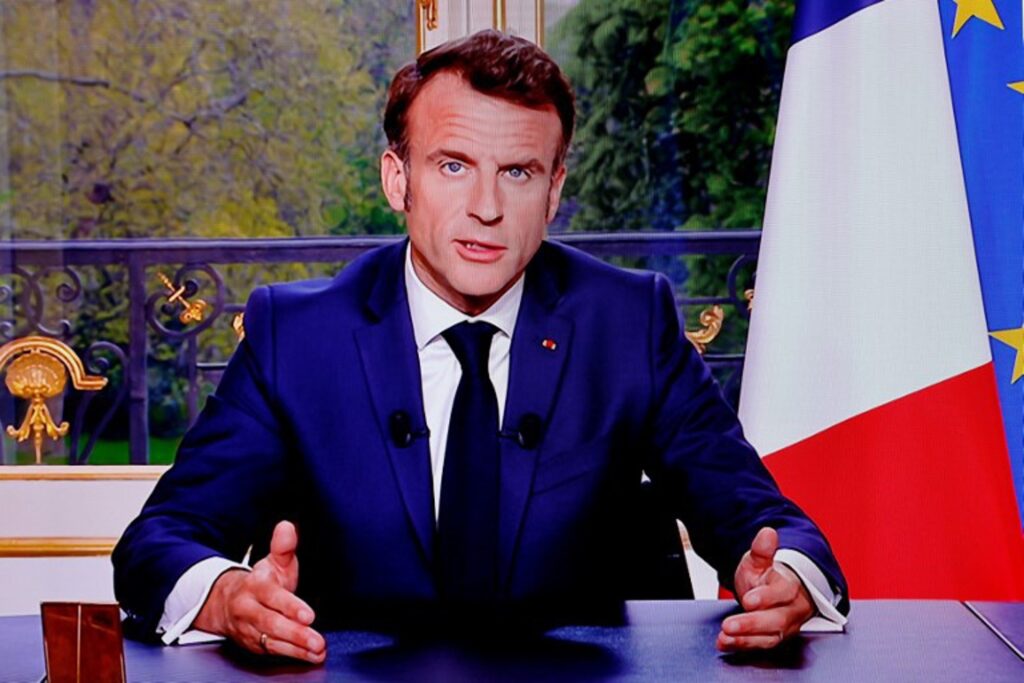Emmanuel Macron gave himself “a hundred days” on Monday to launch a plan of “appeasement” and “action,” after the “anger” aroused by the pension reform, instructing his prime minister to present a roadmap by next week.
“We have before us a hundred days of appeasement, unity, ambition and action in the service of France, this is our duty and I trust us, I trust you to achieve it,” he said in a televised address. “July 14 must allow us to make a first assessment,” he added, stating that Prime Minister Elisabeth Borne would detail the roadmap “as of next week.”
Among the major projects he plans to launch, the president promised “strong announcements from the month of May” against delinquency “and all social or tax fraud,” while promising to “strengthen the control of illegal immigration.”
“The rule of law is our foundation and there is no freedom without rights or without punishment for those who transgress the rights of others,” the head of state said.
Macron also said he was willing to build a “new pact for life at work” in the coming weeks. “This new pact” will be “built in the coming weeks and months through social dialogue” between trade unions and employers’ organisations, the head of state said.
Negotiations will focus on the need to improve employees' incomes , advance careers, share wealth better, improve working conditions, find solutions to professional wear and tear and help with retraining, he added.
Macron added that “the door will always be open to the unions” to negotiate. These, however, refused to attend an invitation set for Tuesday by the Élysée.
The French president also promised to “decongest” all emergency services by the end of 2024.
Returning to issue of the pension reform, he considered that it was “necessary”. But “is this reform accepted? Obviously not, and despite months of consultation a consensus could not be found. I regret this,” he added.
The head of state assured that he heard the “anger” of the French people.”No one can remain deaf to this demand for social justice and the renovation of our democratic life,” he said.
However, “the answer can be neither in immobilism nor in extremism,” he warned.

